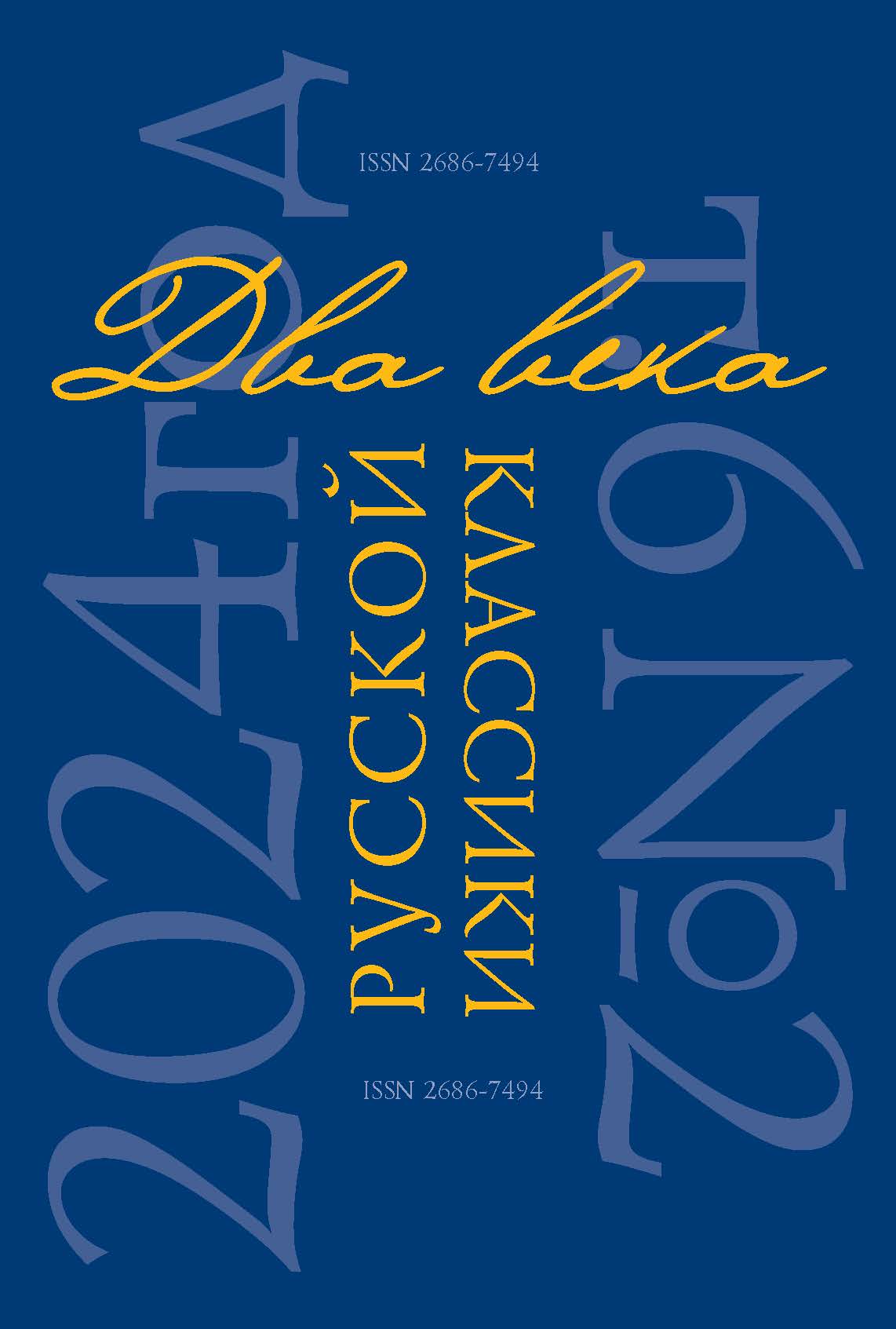Acknowledgments:
The research was carried out at IWL RAS with financial support of the Russian Science Foundation, project no. 23-28-01158 “Maxim Gorky and the Grassroots Literary Movement” (https://rscf.ru/project/23-28-01158/).
Abstract:
The article analyzes the personal and literary relationships of M. Gorky and A. V. Yarovitsky. Having met in 1899, they became work colleagues at the Nizhegorodsky Listok newspaper and friends. The undertaken detailed study of documentary sources testifies to the relationship between the teacher (writer) and the student (aspiring author). An appeal to the creative connections of writers who worked in the period from 1899 to 1903 in Nizhny Novgorod, allows the author of the article to trace the stages of their personal and creative dialogue. The author of the article turns to indirect correspondence: letters from Gorky about Yarovitsky and Yarovitsky to his relatives about Gorky. The identified difference in the creative direction they chose indicates mutual enrichment of material for artistic works. The results of the article allow us to study in more detail the literary process of the late 19th and early 20th centuries.
References
Andreeva, V. G. “ʽLiubeznyi drug… ne serdis’ za otkrovennost’!’: perepiska L. N. Tolstogo i B. N. Chicherina” [“ʽDear Friend... Do not Be Angry for Frankness!’: Correspondence of L. N. Tolstoy and B. N. Chicherin”]. Dva veka russkoi klassiki, vol. 5, no. 1, 2023, pp. 54–83. https://doi.org/10.22455/2686-7494-2023-5-1-54-83 (In Russ.)
Blokhina, V., and L. Libedinskaia. M. Gor’kii v rodnom gorode [M. Gorky in His Hometown]. Gorky, Volgo-Viatskoe knizhnoe izdatel’stvo Publ., 1976. 192 p. (In Russ.)
Zakharova, V. T., and M. G. Urtmintseva. “Nizhegorodskii period v zhizni i tvorchestve M. Gor’kogo: puti stanovleniia khudozhestvennogo soznaniia” [“Nizhny Novgorod Period in M. Gorky’s Life and Creativity: Ways of Formation of Artistic Consciousness”]. Novyi filologicheskii vestnik, no. 2 (45), 2018, pp. 138–153. (In Russ.)
Orekhanov, G. Lev Tolstoi. “Prorok bez chesti”: Khronika katastrofy [Leo Tolstoy. “A Prophet Without Honor”: Chronicle of the Disaster]. Moscow, Eksmo Publ., 2016. 608 p. (In Russ.)
Petrova, M. G. “Neizvestnyi tsikl fel’etonov Gor’kogo: Istoriia nakhodki i problemy atributsii” [“The Unknown Cycle of Gorky’s Feuilletons: The History of the Discovery and the Problems of Attribution”]. Gor’kii i ego epokha. Issledovaniia i materialy [Gorky and His Era. Research and Materials], vol. 1. Moscow, Nauka Publ., 1989, pp. 63–77. (In Russ.)
Kharchev, V. V. Nastavnik nizhegorodtsev: M. Gor’kii i pisateli rodnogo kraia [Mentor of Nizhny Novgorod Residents: M. Gorky and the Writers of His Native Land]. Gorky, Volgo-Viatskoe knizhnoe izdatel’stvo Publ., 1983. 144 p. (In Russ.)









